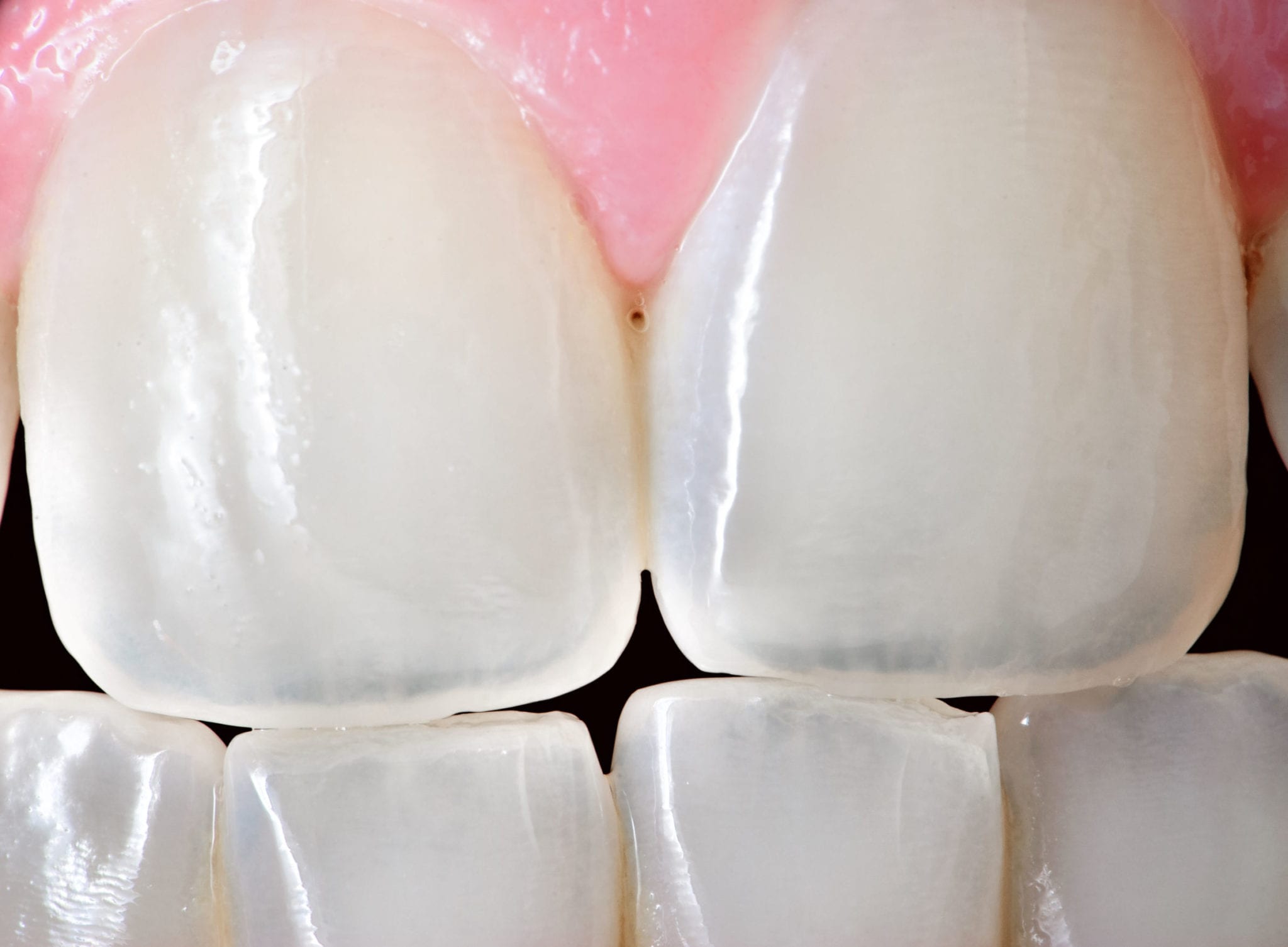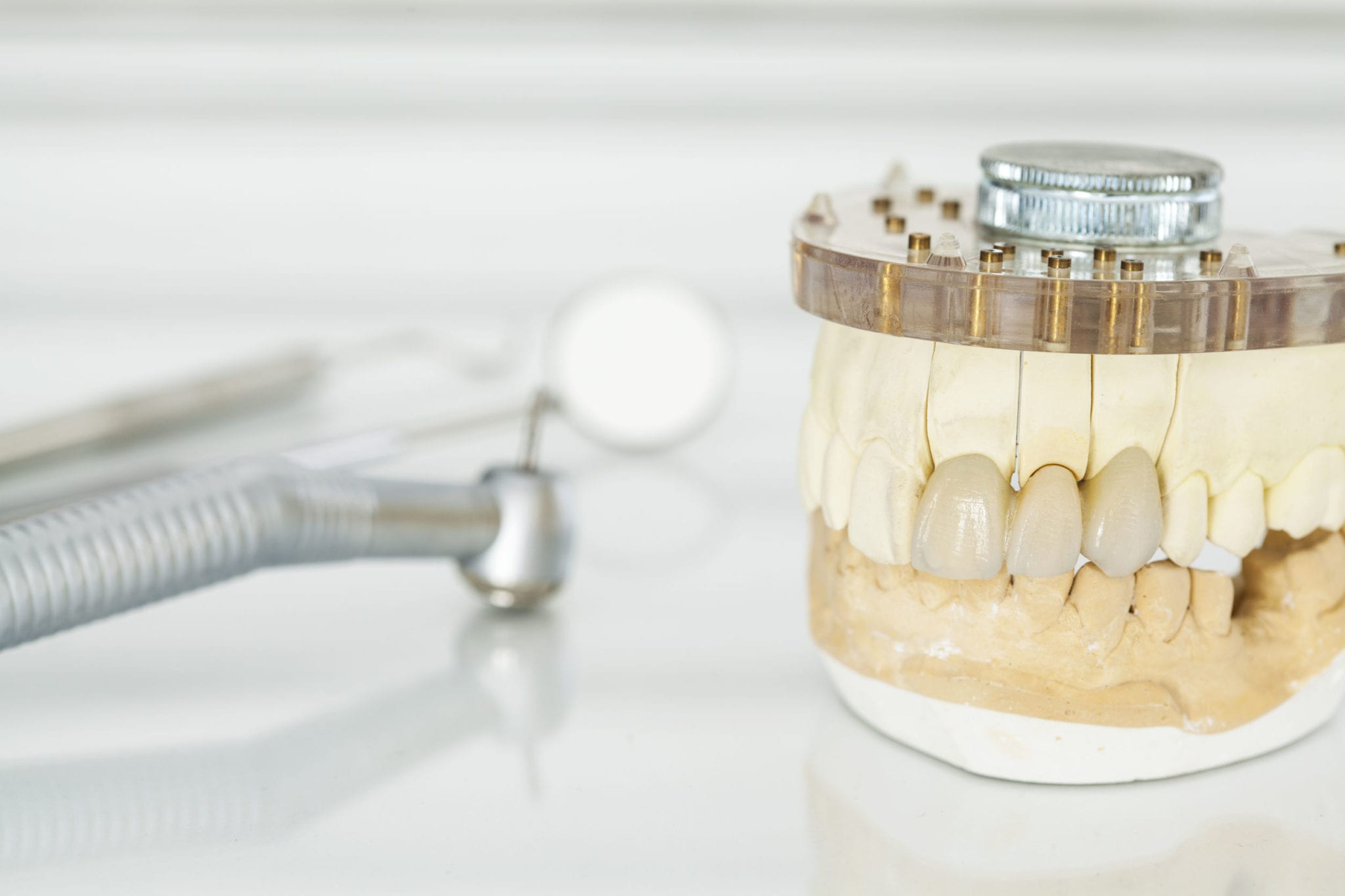
You may have signs of tooth erosion and not even realize it. In this post we’ll detail what exactly tooth erosion is, how it occurs, and what can be done if your dentist finds that you are suffering from it.
What Is Tooth Erosion?
Quite simply, tooth erosion is when your tooth enamel is lost. Tooth enamel is the hardest substance in your body, and it protects your tooth from damage. When the enamel is lost, the dentine area of your teeth is exposed, and you may experience sensitivity and pain. You will also be at a higher risk for tooth decay.
Is it something you need to be worried about? Unfortunately, yes. Tooth erosion occurs most frequently in developed countries like the United States. About 30 percent of all U.S. children and adults will experience tooth erosion at some point, so it’s worth learning about it and talking to your dentist about what you can do.
Causes of Tooth Erosion
Tooth erosion can be caused by many different things, but the common denominator is an overexposure to acids, which wear away the tooth enamel.
Here are the most common reasons for tooth erosion:
- High consumption of soft drinks or fruit drinks
- Diet with high levels of sugar and starches
- Dry mouth
- Acid reflux disease and other gastrointestinal problems
- Frequent vomiting from alcoholism or bulimia
- Genetics
- Certain medications
Wear and tear on your teeth can also cause tooth erosion. If you grind your teeth (bruxism), over time you may wear your enamel away. Your dentist can fit you with an oral appliance to protect your teeth from bruxism.
You can also cause wear and tear from brushing or flossing too hard or chewing on hard objects, such as pens or pencils. The use of chewing tobacco also increases your risk of tooth erosion.
Signs of Tooth Erosion
You may experience one or more of these symptoms if you have tooth erosion.
- Heightened sensitivity to hot, cold, or sweet foods
- Yellow or discolored teeth
- Cracks and chips in teeth
- Indentation in teeth
Prevention of Tooth Erosion
As mentioned above, the loss of enamel leads to a higher risk of decay. It’s important to get treatment for cavities right away to minimize damage. Keeping regular dental appointments is a must if you have any signs of tooth erosion. You also need to brush and floss daily to keep your teeth in the best possible condition.
Wean yourself from acidic drinks like soft drinks and fruit juices. Rinse with plain water after eating any acidic foods. You can also use a straw for acidic drinks, which helps keep it away from your teeth, and drink lots of water through the day to keep your mouth hydrated and healthy.
You can limit snacks throughout the day, which prevents plaque buildup, and chew sugarless gum after meals and snacks to remove plaque and increase saliva, which keeps acid in check.
Treatment for Tooth Erosion
You may benefit from using sensitive toothpaste and a soft bristled toothbrush. Wait about 30 minutes after consuming acids to brush your teeth. This will give your saliva a chance to break down the acids first and will protect your teeth.
Once enamel is lost, your body cannot regenerate it. Your dentist may use applied fluoride treatments to protect your teeth from decay. If you have dry mouth, your dentist may prescribe treatments to increase saliva flow.

Additionally, your dentist can place fillings or crowns on your teeth to improve appearance and protect against further damage. Schedule an appointment today for a dental consultation where you can learn more about tooth erosion and how to minimize its effects.






